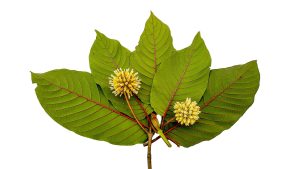Delta 9 THC, or tetrahydrocannabinol, is the primary psychoactive compound found in cannabis plants. It’s responsible for the well-known “high” associated with marijuana use. But what exactly are the effects of Delta 9 THC, and how does it interact with the human body?
The Science Behind Delta 9 THC
When consumed, Delta 9 THC binds to cannabinoid receptors in the brain and nervous system. These receptors are part of the endocannabinoid system, which plays a role in regulating various physiological processes, including mood, appetite, pain sensation, and memory.
The binding of Delta 9 THC to these receptors triggers a cascade of chemical reactions, leading to the release of neurotransmitters like dopamine and serotonin. This is what causes the euphoric and relaxing effects commonly associated with marijuana use.
Short-Term Effects of Delta 9 THC
The short-term effects of Delta 9 THC can vary from person to person, depending on factors such as dosage, tolerance, and individual physiology. Some common effects include:
- Euphoria and relaxation
- Altered perception of time
- Increased appetite (the “munchies”)
- Impaired memory and concentration
- Dry mouth and eyes
These effects typically peak within 30 minutes to an hour after consumption and can last for several hours.
Long-Term Effects and Potential Risks
While the short-term effects of Delta 9 THC are well-documented, the long-term effects are less clear. Some studies suggest that chronic, heavy use of marijuana may lead to:
- Respiratory issues (if smoked)
- Cognitive impairment
- Increased risk of mental health problems in susceptible individuals
- Dependence and withdrawal symptoms
It’s important to note that more research is needed to fully understand the long-term effects of Delta 9 THC use.
Comparing Delta 9 THC to Other Cannabinoids
Delta 9 THC is just one of many cannabinoids found in cannabis plants. Another notable cannabinoid is CBD (cannabidiol), which has gained popularity for its potential therapeutic benefits without the psychoactive effects.
For a detailed comparison of Delta 9 THC and other cannabinoids, check out this informative article on delta 9 compared to thc. It provides a comprehensive look at the similarities and differences between these compounds.
The Legal Landscape
The legal status of Delta 9 THC varies by jurisdiction. In some states and countries, marijuana has been legalized for medical and/or recreational use, while in others, it remains illegal.
It’s crucial to familiarize yourself with the laws in your area before using any products containing Delta 9 THC.
The Bottom Line
Delta 9 THC is a powerful compound with a range of effects on the human body and mind. While it can offer benefits for some individuals, it’s not without risks, particularly with heavy or prolonged use.
As with any substance, it’s essential to approach Delta 9 THC use with caution and to consult with a healthcare professional if you have any concerns or pre-existing medical conditions.






















